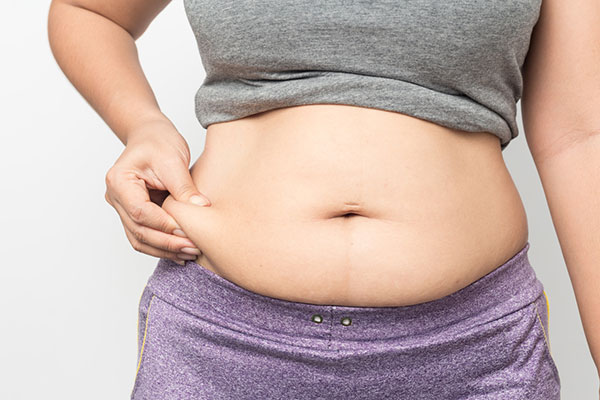Nobody likes belly fat. Many of us have tried in vain for years to get rid of it.
We exercise. We diet. But the stubborn belly fat won’t go away.
And it’s about far more than vanity.
The midsection is the unhealthiest place to carry extra weight. Belly fat is linked to heart disease, diabetes, metabolic syndrome, and other serious health conditions.
But researchers have found that one vitamin may help you reduce your “spare tire.”
Scientists in Holland analyzed health data from over 6,000 people. The participants were men and women from 45 to 65 years old. The majority were overweight.i
The researchers wanted to find out if “abdominal subcutaneous adipose tissue” (also known as belly fat) was associated with a vitamin deficiency.
The Anti-Belly Fat Vitamin
To get the most accurate findings, the researchers adjusted for other factors that affect weight around the midsection, like chronic diseases, food and alcohol intake, and exercise levels.
The researchers found that for both men and women, low levels of vitamin D were strongly linked to belly fat.ii
Rachida Rafiq is a doctoral student in the department of internal medicine at the VU Medical Center in Amsterdam. She was the study’s lead author.
Rafiq said her research found a “strong relationship between increasing amounts of abdominal fat and lower levels of vitamin D. This strong association may point to a possible role for vitamin D in abdominal fat storage.”
She added that “individuals with larger waistlines should consider having their vitamin D levels checked.”
The study was presented at the European Society of Endocrinology.
The Right Way to Get Vitamin D
Vitamin D doesn’t just help you avoid belly fat. Studies show it fights cancer, heart disease, and osteoporosis. It also boosts immunity.
Many of us don’t get nearly enough of this crucial vitamin. One study found that more than 40% of Americans are deficient.iii
Have your doctor check your vitamin D level. It is a simple blood draw.
If your reading is less than 20 ng/mL you are deficient. Optimal levels are in the 40-60 ng/mL range.
Your body produces vitamin D when your skin is exposed to sunlight. Try to get 15 minutes of sun each day with your arms and legs exposed.
If you can’t increase your sun exposure, take a quality vitamin D supplement. We recommend 5,000 IUs a day.
Make sure you buy the D3 form, not D2. D3 is more easily absorbed by your body. It will increase your levels more than twice as much as D2 will.
One more thing…
Your body needs magnesium to metabolize vitamin D. Make sure you’re getting enough by eating plenty of magnesium-rich foods. Good sources include wild-caught, cold-water fish, nuts, seeds, leafy greens, and quinoa. Another option is to take a magnesium supplement.
Once you raise your vitamin D level, you may find it a whole lot easier to reduce the amount of weight around your middle.
Editor’s Note: Have you gained weight during the pandemic? You’re not alone. Americans packed on an average of two pounds a month during the coronavirus crisis, according to a recent study.
Read our monthly journal Independent Healing to discover how to lose pandemic weight without going hungry or giving up your favorite foods. Go HERE to find out more.
Related Articles
The ‘Secret Sauce’ That Helps You Lose Weight

